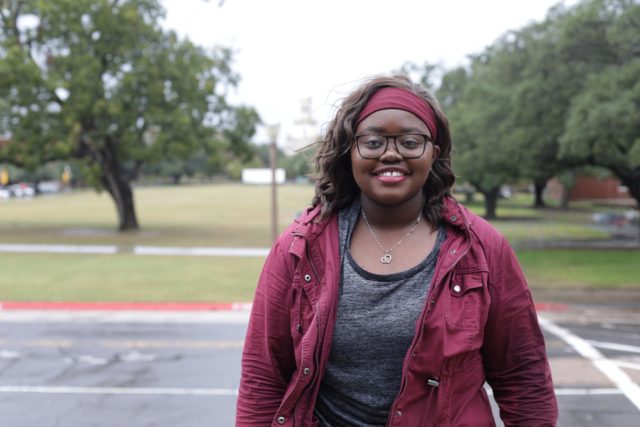By Elise Crosley | Reporter
Clementina Akpomedaye is an 18-year-old junior at Baylor. She moved from Nigeria to Waco when she was just 16-years-old to attend college. According to Akpomedaye, the school system in Nigeria is different than the United States, allowing her to start at a university much earlier than American students. She said her transition was difficult, full of meeting new friends and learning about American culture.
Born in England and visiting there every summer, Akpomedaye grew up traveling often. She has also traveled to France, Canada and visited the United States for the first time when she was nine years old. She shared that attending college at the age of 16 was difficult, but not for the reasons some might think. People often felt superior to her because of her age, making her transition tougher.
“I considered myself an adult by the time I was 16. People trying to talk down to me when I was 16 didn’t make sense because, in some ways, I was more mature than they were. That was an issue,” Akpomedaye said.
She quickly learned the pros and cons of American culture.
“One thing about America is that they give you opportunities — actually, not really — they give their citizens opportunities. One thing I love about Nigeria is that no matter where you are from there, we’re all brothers and sisters. But here, it feels like a lot of people are divided in a lot of different ways. I can understand the need to want to exempt yourself from how you identify from another identification label. Sometimes, though, I feel like that gets in the way of actually trying to understand each other, which creates an imbalance politically,” Akpomedaye said.
She said although she is here legally, there is constantly the fear in the back of her mind that she could be forced to leave the United States at any moment.
“When the travel ban happened, I couldn’t go home because my mom was so worried. It’s not affecting the west coast of Africa — it’s affecting the Middle East and upwards. But us in West Africa are scared for our lives because they might just think we’re all the same. That’s what people do. They think we’re all the same and we’re not. I’m not wanting to go home because I’m worried about how quick someone could just change their mind and ban the entirety of the other side of the Atlantic,” Akpomedaye said.
She explained a few misconceptions people have about her home country.
“First of all, English is the official language of Nigeria. Don’t come to Nigerians thinking their first language isn’t English. You can tell by the way they’re talking to you that they assume you can’t speak English. We’re educated. The idea of a starving nation needs to stop. Yes, we do have poverty, but you have poverty here too. I’m pretty sure the wage gap between classes is a lot too. We have issues, but y’all have issues too,” Akpomedaye said.
According to South Korea sophomore Jin Hee Kim, Akpomedaye is positively affecting the lives of those around her.
“Clementina is a sincere person. She shows deep care for others and doesn’t settle for less. She also seeks to truly understand the love and fear of God and this hunger inspires me as a sister in Christ. She carries maturity beyond her years, but also knows how to be honest with herself. She is deeply treasured by those around her,” Kim said.
Akpomedaye understands the importance of knowing different cultures and diving into new experiences that will widen one’s understanding of the world.
“International kids are fun. If you have one as a friend, you’ll probably be exposed to a lot of new things you never thought you would. It’s not as good as living in their country, but it feels like you’re getting a whole new cultural experience when you have one,” Akpomedaye said.



